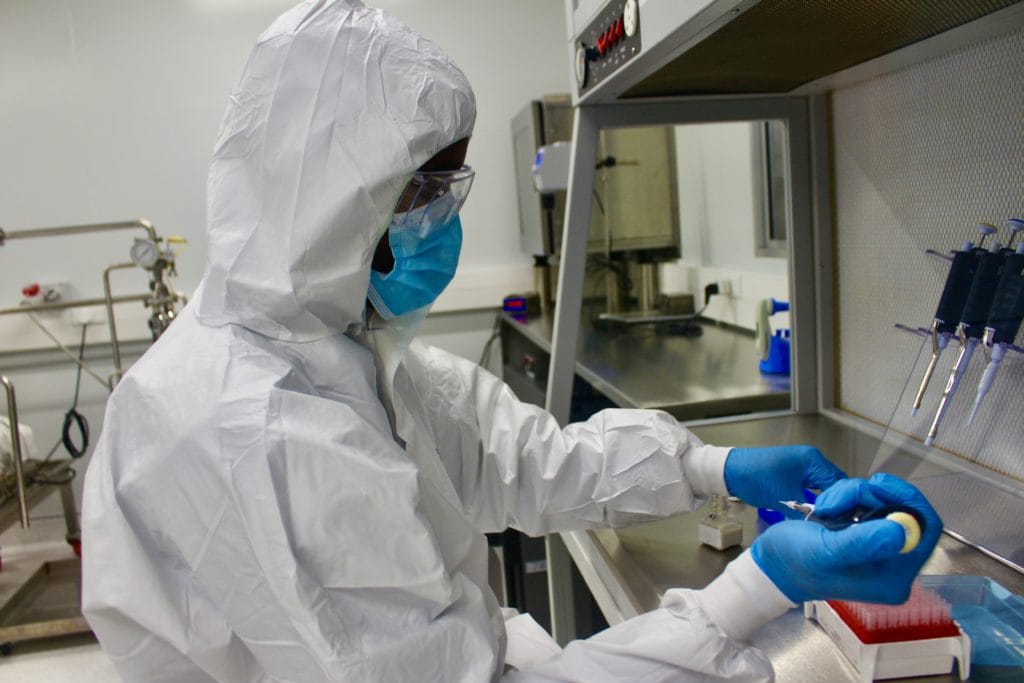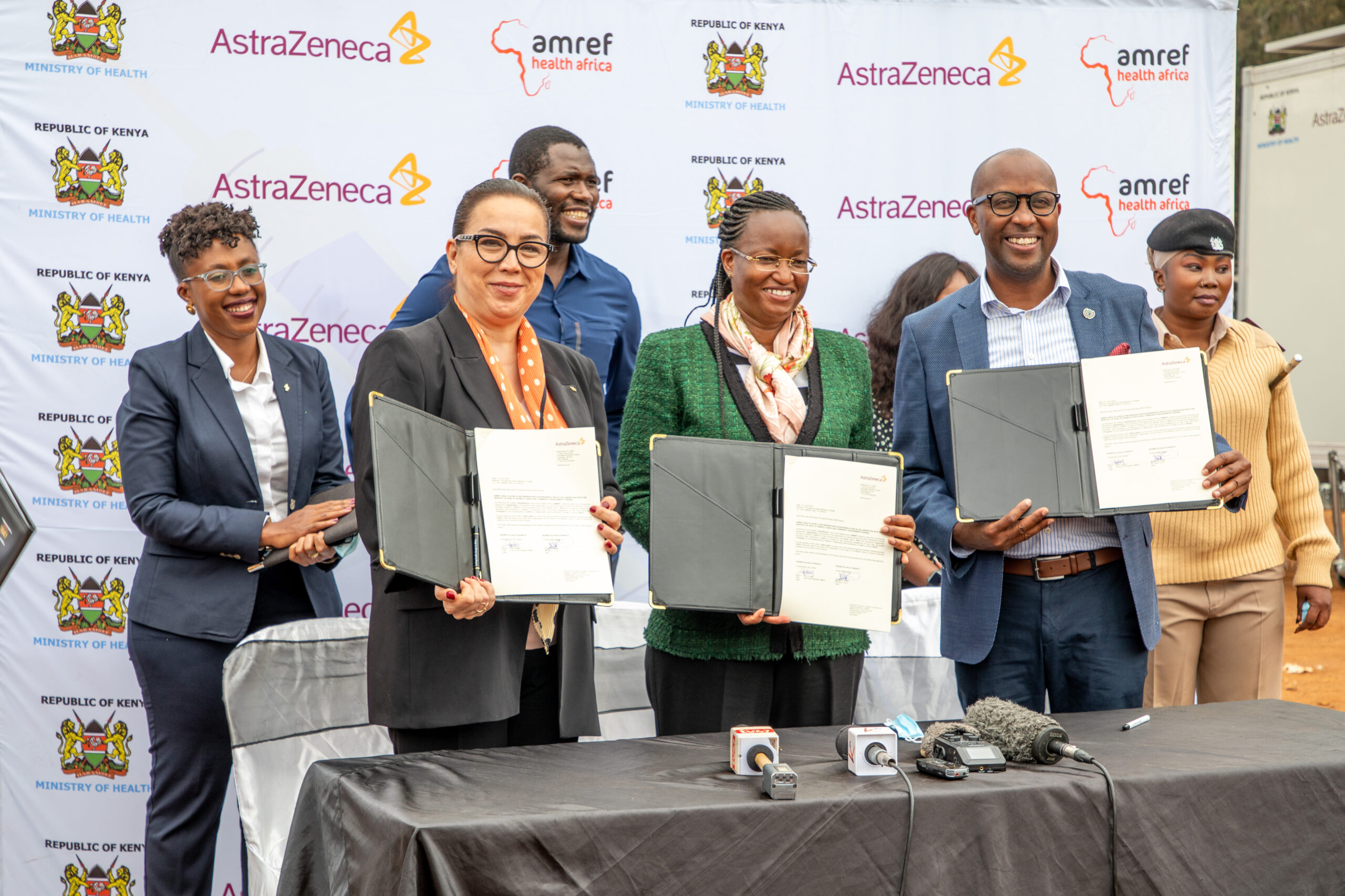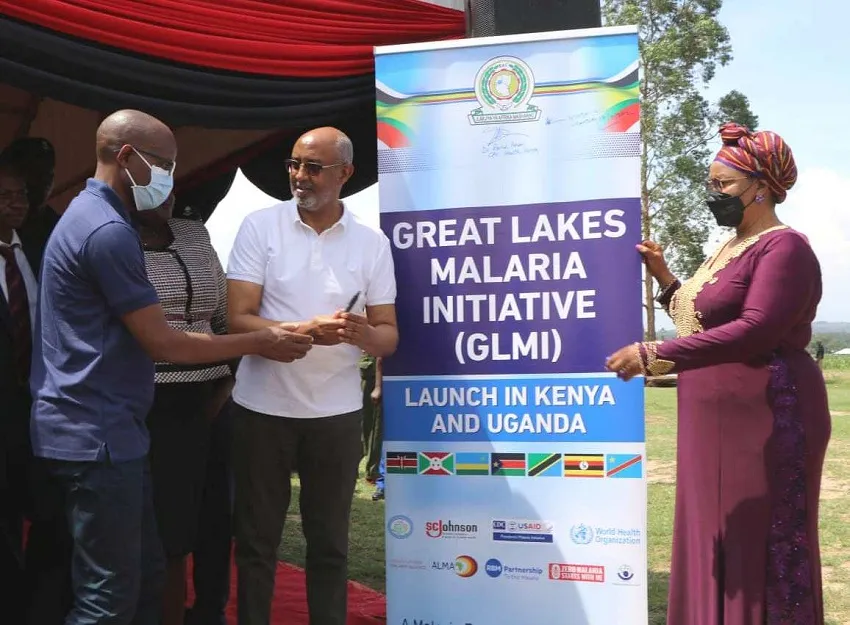Amref Health Africa Partners with WHO-AFRO to Train Malaria Microscopists
Tuesday, 24 October, 2017

The recent outbreak of malaria in more than five counties in Kenya has brought to light the reality that a great deal needs to be done to improve the quality of diagnosis, treatment and prevention of this deadly disease.
According to the Kenya Malaria Indicator Survey 2015, malaria accounts for about 18% of outpatient consultations and 10% of hospital admissions and therefore remains a major public health problem in this country.
Early diagnosis of malaria is crucial to guide proper management and reduce illness and death. Confirming the presence of malaria parasites in blood before treatment with antimalarial drugs is crucial, as the accuracy of clinical diagnosis is poor and leads to frequent mis-diagnosis of malaria.
Laboratory diagnosis of malaria in health facilities is through the use of rapid diagnostic tests or microscopy; however, microscopy by trained, competent staff remains the accepted clinical standard due to the limitations of rapid diagnostic tests. Yet, performance in malaria microscopy is variable with poorly performing microscopists found even at the national level, highlighting the need to increase opportunities for training and to find ways to objectively measure the competency of laboratory technologists and other personnel working in national malaria control programmes and throughout the health system.
Since 2009, Amref Health Africa has partnered with the World Health Organization Regional Office for Africa (WHO-AFRO) to offer the External Competency Assessment for Malaria Microscopists (ECAMM) course in Africa, previously conducted only in southeast Southeast Asia. This course provides an objective measurement of malaria microscopy performance by addressing three main features: detecting malaria parasites, identifying the different malaria species, and determining the quantity of malaria parasites in blood.
During the first week of October 2017, the Amref Health Africa Laboratory Training Unit conducted the 51st ECAMM course at its Central Laboratory training facility in Nairobi, Kenya with 12 participants from Uganda, Malawi, Botswana and Kenya. Since the introduction of ECAMM into Africa, over 500 microscopists have been trained, more than 90% of them from the African continent. Participants are graded into four WHO competency categories, with levels 1 and 2 being highly competent microscopists who can become trainers and form part of the national pool of malaria microscopists in their countries.

WHO ECAMM facilitator David Isaboke explains: “Quality assured malaria microscopy services remain key for malaria diagnosis and management in malaria-afflicted countries. This is in line with WHO recommendations, as well as national policy in Kenya, that malaria parasites should be demonstrated in blood before treatment is instituted in all cases of the disease. This means that diagnosis through accurate microscopy or rapid diagnostic tests is critical in the management of malaria”.
“We are confident that certified microscopists will act as good ambassadors to cascade quality malaria microscopy services to lower level health facilities in their countries. This programme conforms to Amref Health Africa’s mission of promoting lasting health change in Africa,” David added.
Amref Health Africa prides itself in having four Level One microscopists on staff, three of them being formally trained WHO ECAMM facilitators. This capacity in terms of skills has placed Amref Health Africa’s Laboratory Training Unit as the lead organisation for conducting the ECAMM in Africa, in partnership with the Université Cheick Anta Diop (UCAD) in Senegal which coordinates ECAMM in the Francophone African countries.

From the participants:
“I chose to do this course because I work as the National Malaria Laboratory Coordinator, working with the National Malaria Programme to ensure quality in malaria diagnosis. I am involved in training laboratory staff, supervising laboratories and assessing the competency of our staff. This course is vital since it builds the capacity of any cadre in a position similar to mine. After taking this course, I can now effectively cascade malaria training to other laboratories in the country, and take part in malaria slide rechecking and competency assessment of microscopists in the country.” Moses Vurayai from Botswana.
“I have gained more skills and knowledge to help me train others. This course will also help me gauge myself in terms of where I was before and after the training and contribute towards complete eradication of Malaria malaria out of the county and also the country at large.” Joseph Mwangi from Kenya.
Written by Dennis M. Mwiti and compiled by Dina Karwitha.







